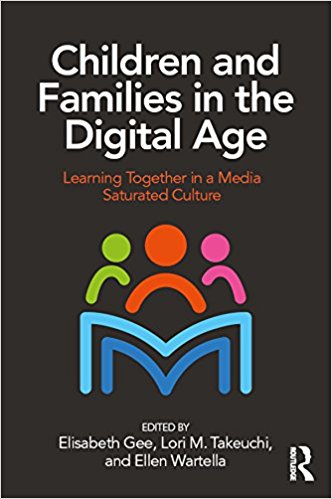Children’s learning experiences in home, school, and community settings are often disconnected from one another, and this challenge particularly affects those who are already under-served. How might learning be better linked to support children’s development? How are some communities innovating to address this persistent challenge and how can digital technologies contribute toward solutions?
At a special TELOS Initiative symposium at Stanford’s Graduate School of Education on November 8, Lori Takeuchi (Joan Ganz Cooney Center at Sesame Workshop), June Ahn (NYU), and Andrew Volmert and Kevin Levay (FrameWorks Institute) presented ongoing national research about families and children’s learning beyond school, and Sunanna Chand from Remake Learning shared examples of how educators and organizations in Pittsburgh have worked to build networks that guide students through pathways of connected learning. This symposium kicked off a two-day workshop during which regional teams collaborated on design challenges. Read on for highlights.
Professor Brigid Barron welcomed a full house to the TELOS symposium.
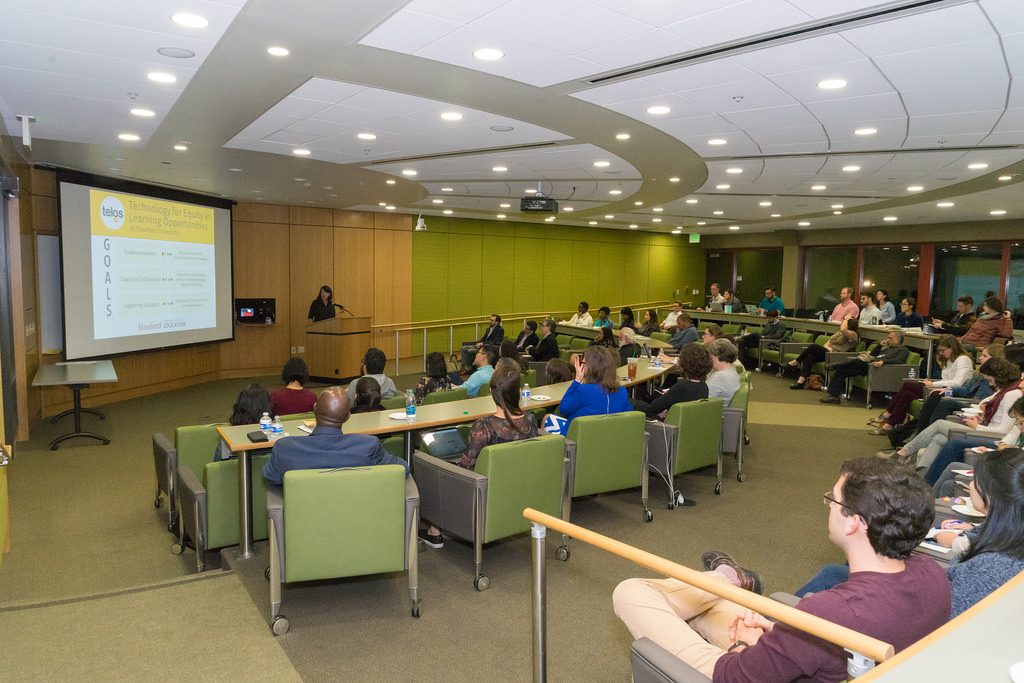
Lori Takeuchi and June Ahn presented some findings from a national survey of more than 1500 parents with children between the ages of 3-12 years old.
Lori Takeuchi discusses the #FamLABproject at TELOS Learning Across Boundaries symposium at Stanford. pic.twitter.com/09OrlUYBE4
— Cooney Center (@CooneyCenter) November 9, 2017
In a national survey of more than 1500 parents, 64% of grandparents play a role in supporting a child’s interests – talking about, co-participating, or finding resources. #FamLABProject
— Cooney Center (@CooneyCenter) November 9, 2017
.@ahnjune: Majority of parents agree kids should have unstructured time, but more than half also say they want to get kids involved in as many activities as possible. Need to unpack these findings. #FamLABProject pic.twitter.com/fHT9Oq1D0r
— Cooney Center (@CooneyCenter) November 9, 2017
According to qualitative study by @FrameWorksInst, school and home dominate public thinking about learning – informal learning environments are less widely perceived as essential. #FamLABProject
— Cooney Center (@CooneyCenter) November 9, 2017
Interviews by @FrameWorksInst suggest public perceives out of school environments as opportunity to break up the routine, provide fun — more about reinforcing/repeating school learning than deepening learning #FamLABproject
— Cooney Center (@CooneyCenter) November 9, 2017
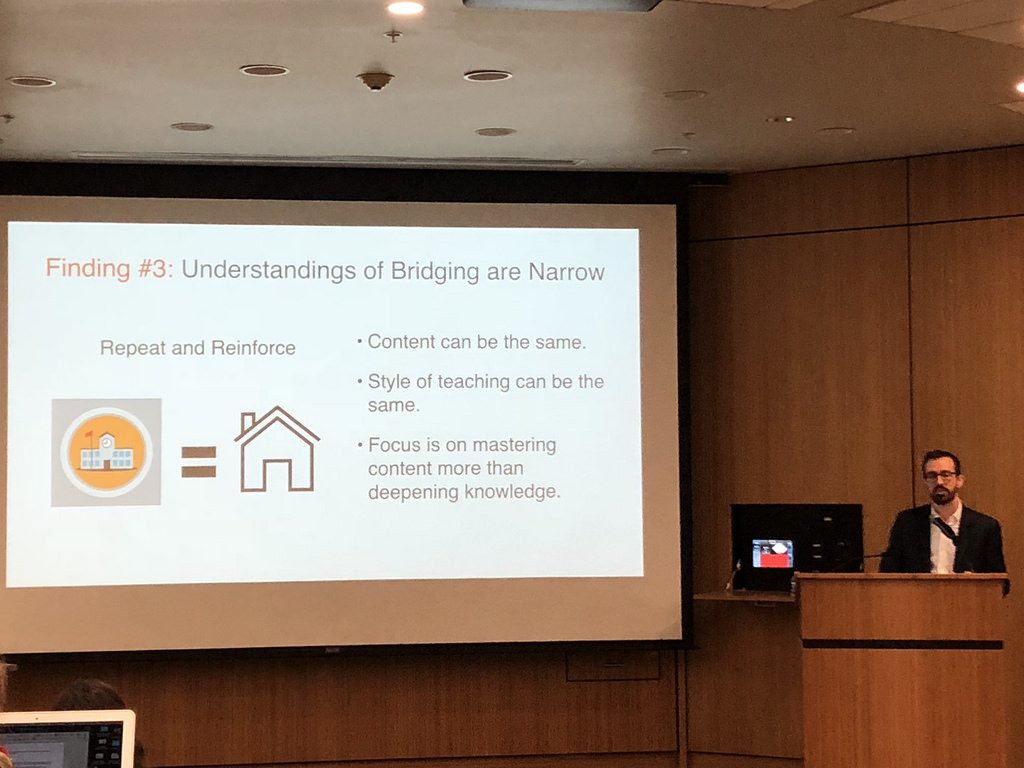
Public view of technology is that it can be harmful to real learning – it is seen as entertaining or distracting @FrameWorksInst #FamLABproject
— Cooney Center (@CooneyCenter) November 9, 2017
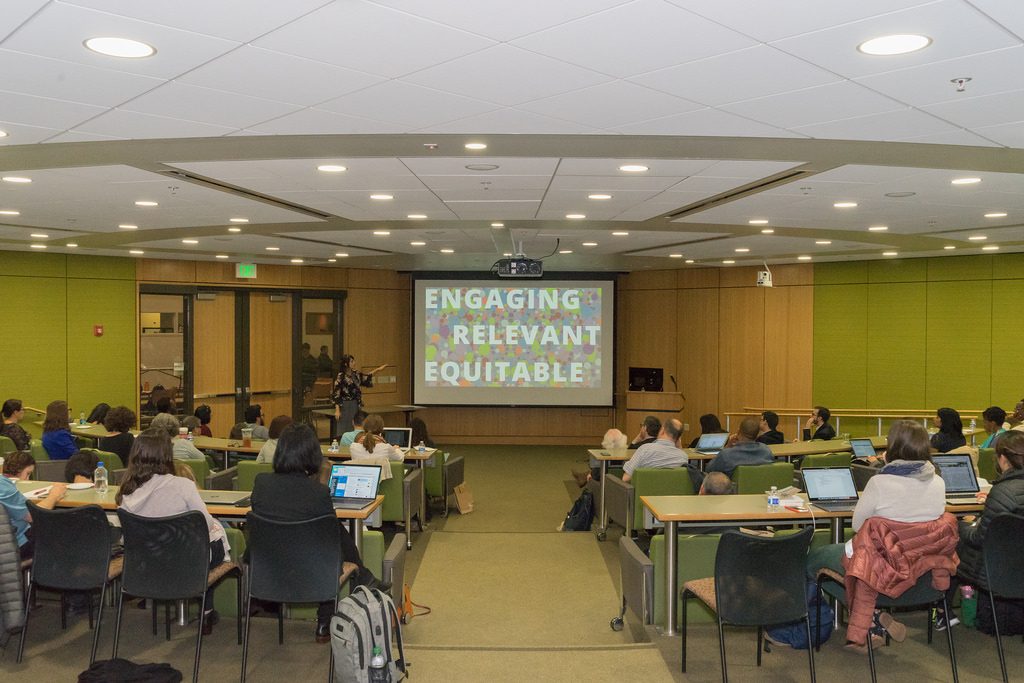
Today’s kids need creative, engaging experiences to learn because they will need to contribute to the grand challenges in the coming years. Need a more connected approach to learning, across different environments. @SunannaC from @remakelearning #FamLABProject
— Cooney Center (@CooneyCenter) November 9, 2017
On Thursday morning, FamLAB participants representing seven regional teams gathered at Stanford’s d.school to kick off two days of design workshops.
Excited to kick off the #FamLABProject design workshop this morning! pic.twitter.com/IRZQZC7JfW
— ahnjune (@ahnjune) November 9, 2017
We’re thrilled to be kicking off a day of design thinking to bridge children’s learning across boundaries with #FamLABProject participants pic.twitter.com/Hj0NjPuQve
— Cooney Center (@CooneyCenter) November 9, 2017
The research teams provided overviews of their findings to help frame the discussions.
New research from @CooneyCenter @loritakeuchi & @ahnjune on who & how grown ups support the kids’ learning – driving, talking, funding, teaching, learning #FamLABProject pic.twitter.com/qVhrJTMZ2h
— Alicia Blum-Ross (@aliciablumross) November 9, 2017
Parents from different communities-rural/urban, hi/low-SES, have different experiences we must pay attention to #FamLABProject pic.twitter.com/UXJpK4oJdd
— Cooney Center (@CooneyCenter) November 9, 2017
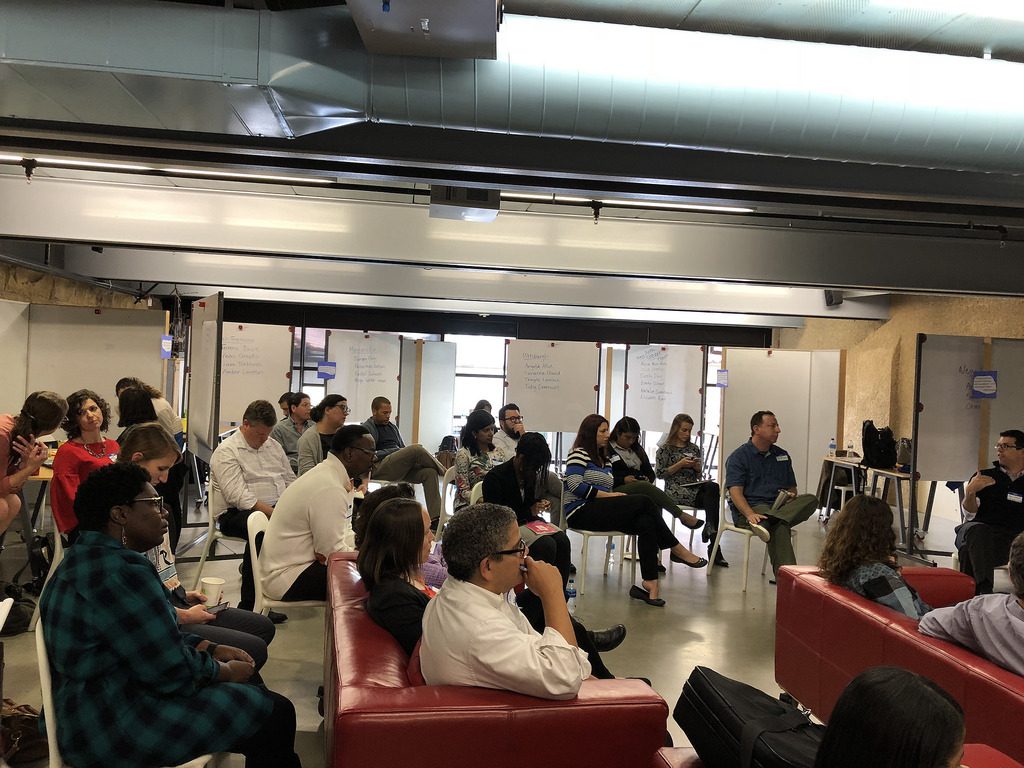
. @remakelearning research w parents showing their suspicions abt tech @CooneyCenter #FamLABProject pic.twitter.com/zEKP9fJo0k
— Alicia Blum-Ross (@aliciablumross) November 9, 2017
The team from FrameWorks raised some of the findings they uncovered through extensive interviews.
Communications is a design challenge in itself- how do you get all parties to understand and get on board with the work you are doing? @FrameWorksInst #FamLABProject
— Cooney Center (@CooneyCenter) November 9, 2017
People bring different assumptions about “places” like parks, libraries, and museums, and the kind of learning that can happen there. How can we help broaden these mental models? #FamLABproject
— Cooney Center (@CooneyCenter) November 9, 2017
Then the teams began to put their heads together to define the issues they wanted to tackle.
“The Creative Confluence” representing PGH @stanforddschool | Team: @adallie1 @SunannaC @theanalogdivide #me @CooneyCenter #FamLABProject pic.twitter.com/deZj3sNKYh
— Temple Lovelace (@drlovelace) November 9, 2017
Creating personas to reveal insights for how might we design for … #FamLABProject pic.twitter.com/YQ88SGZvNd
— ahnjune (@ahnjune) November 10, 2017
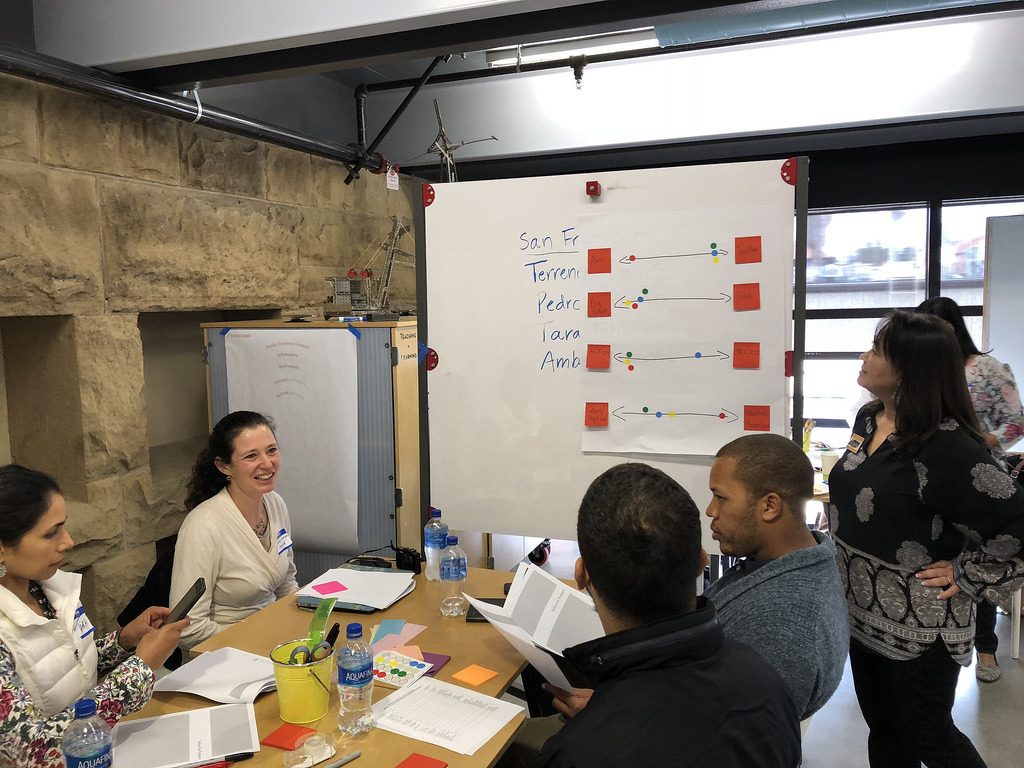
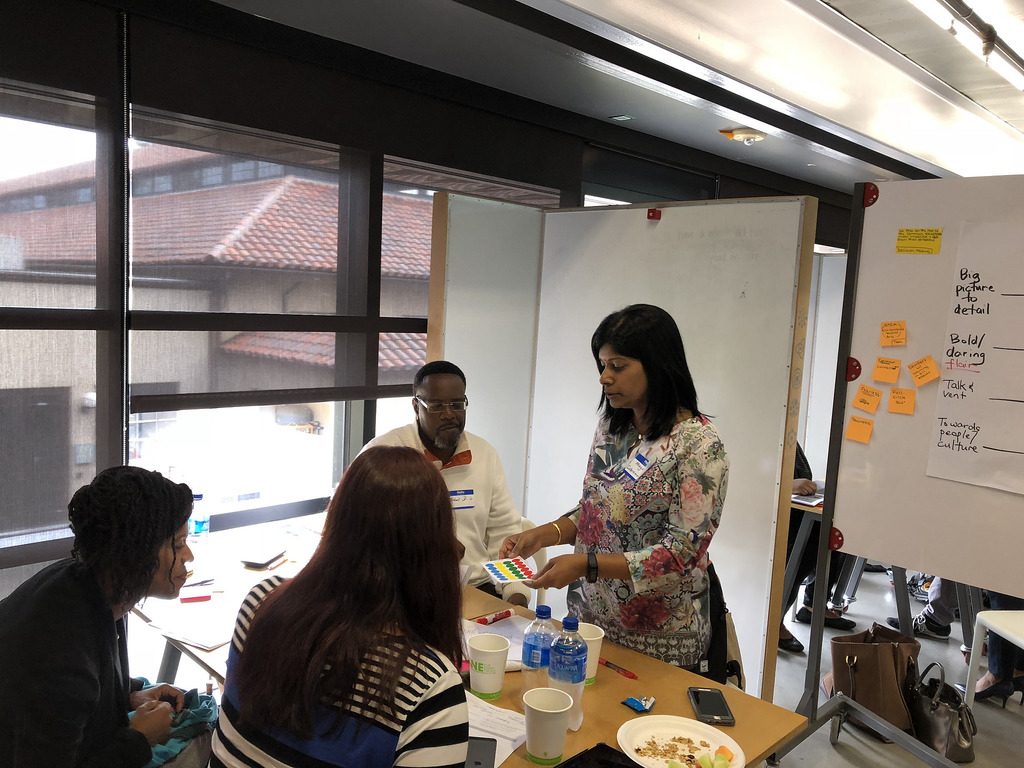
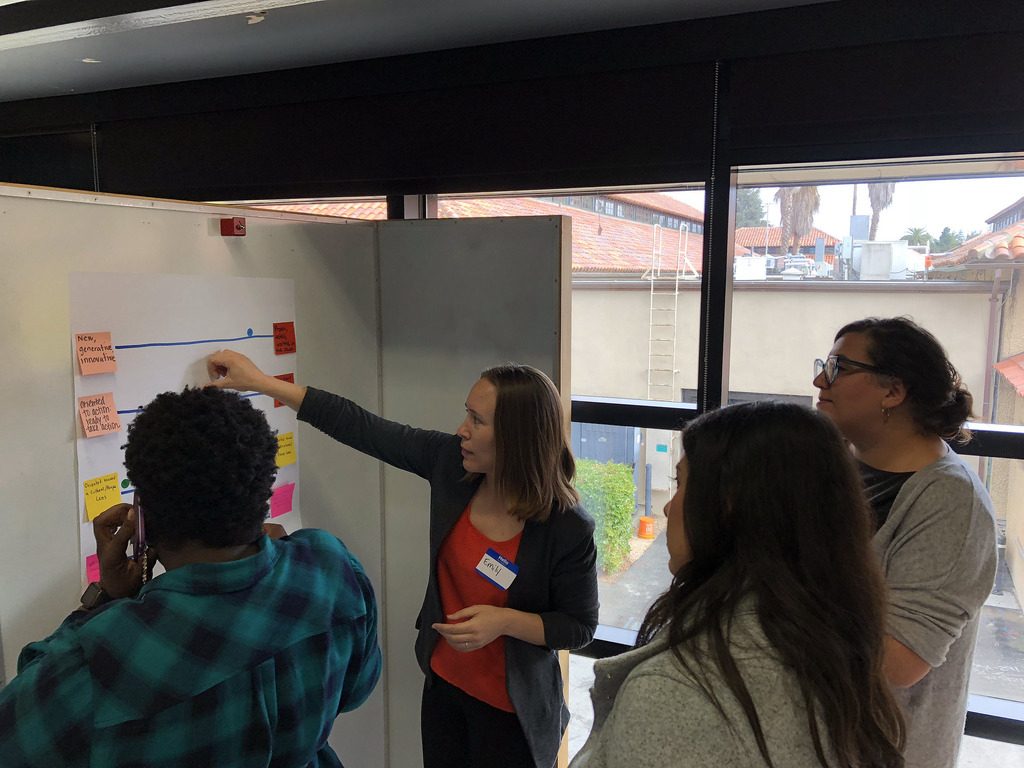
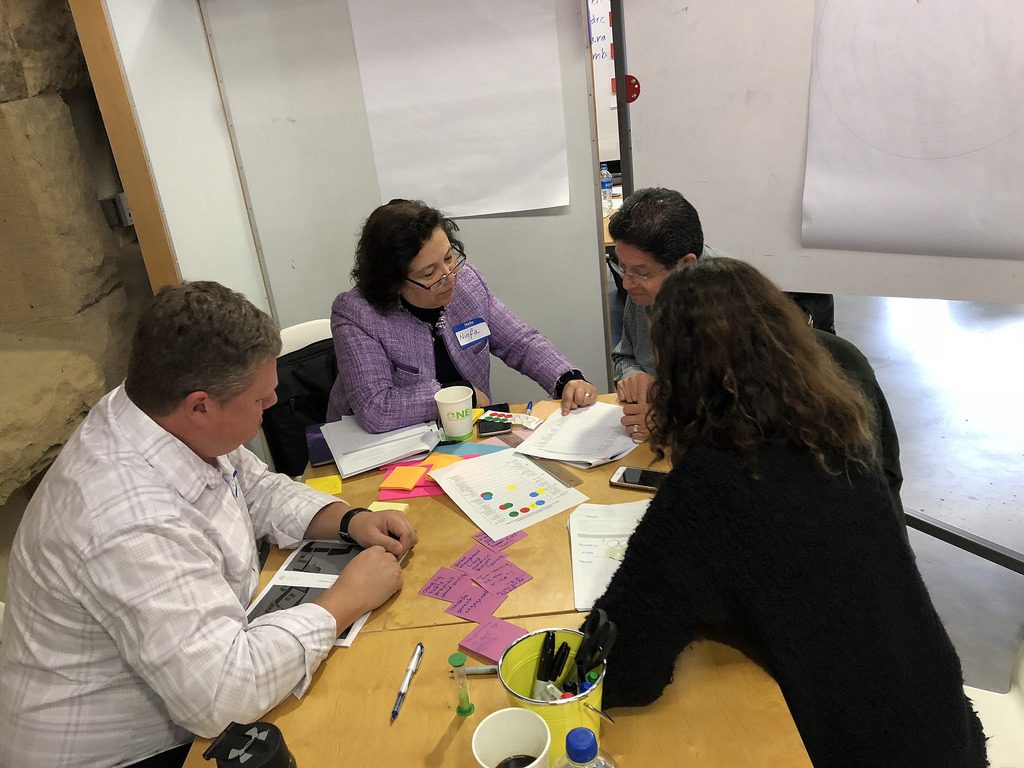
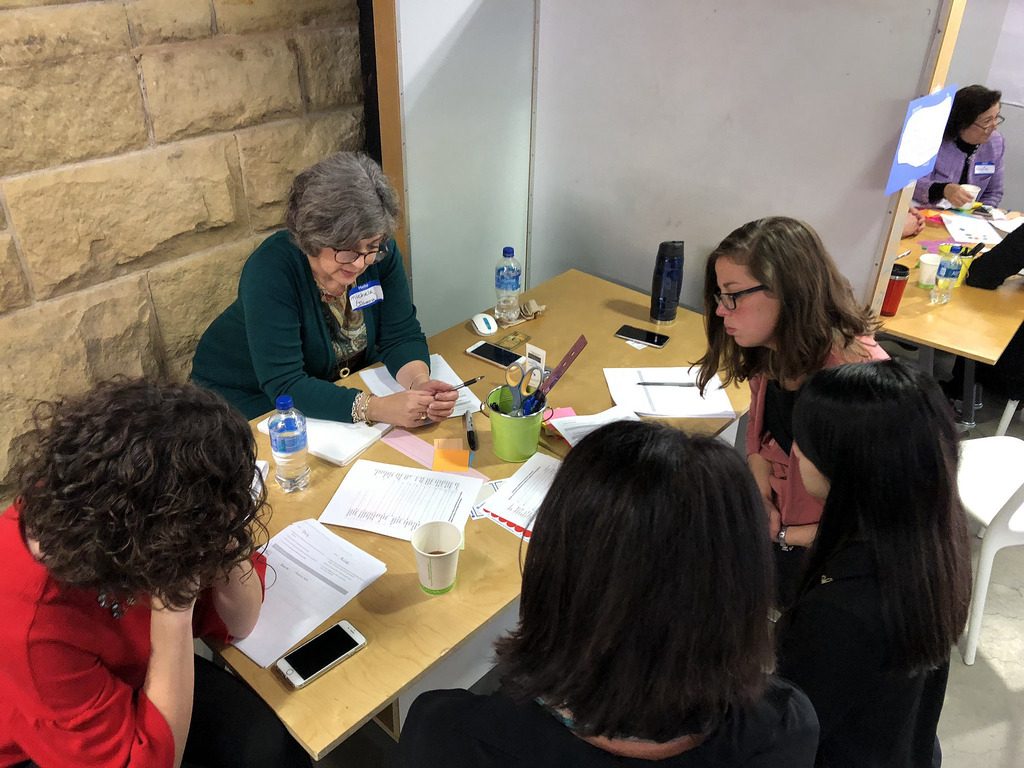
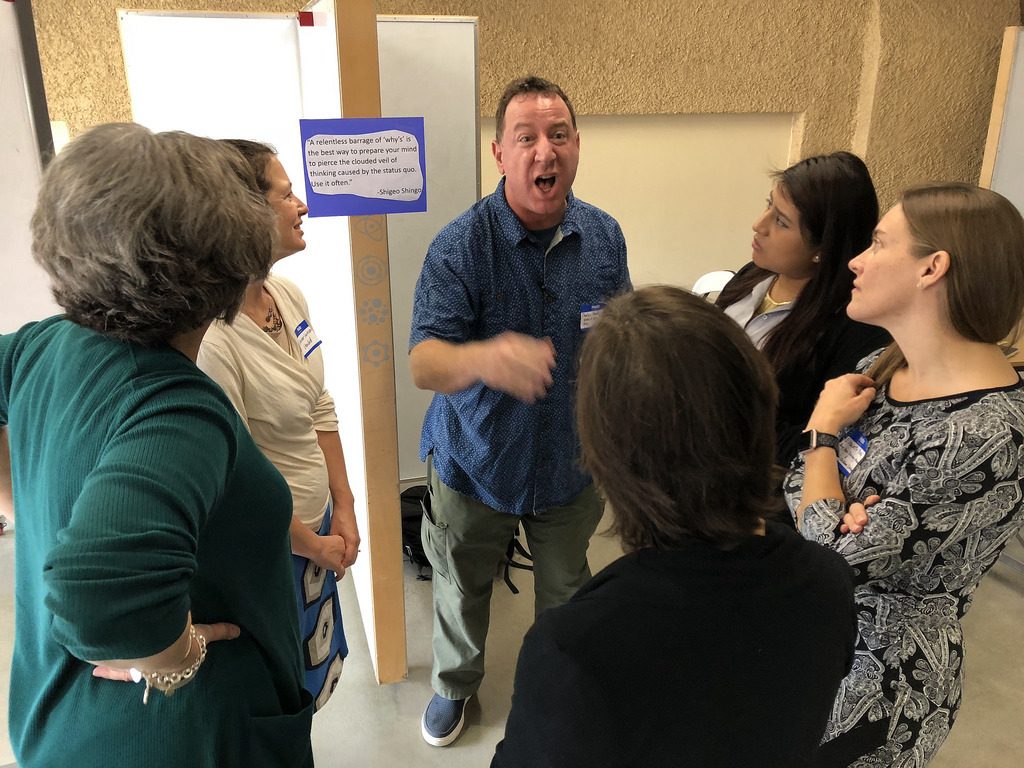
Such a fun first day #FamLABProject. Looking forward to Day 2! https://t.co/rXdCyJImYK
— Mega Subramaniam (@mmsubram) November 10, 2017
On Friday, the teams were energized and ready to present their ideas to help build stronger bridges for learning.
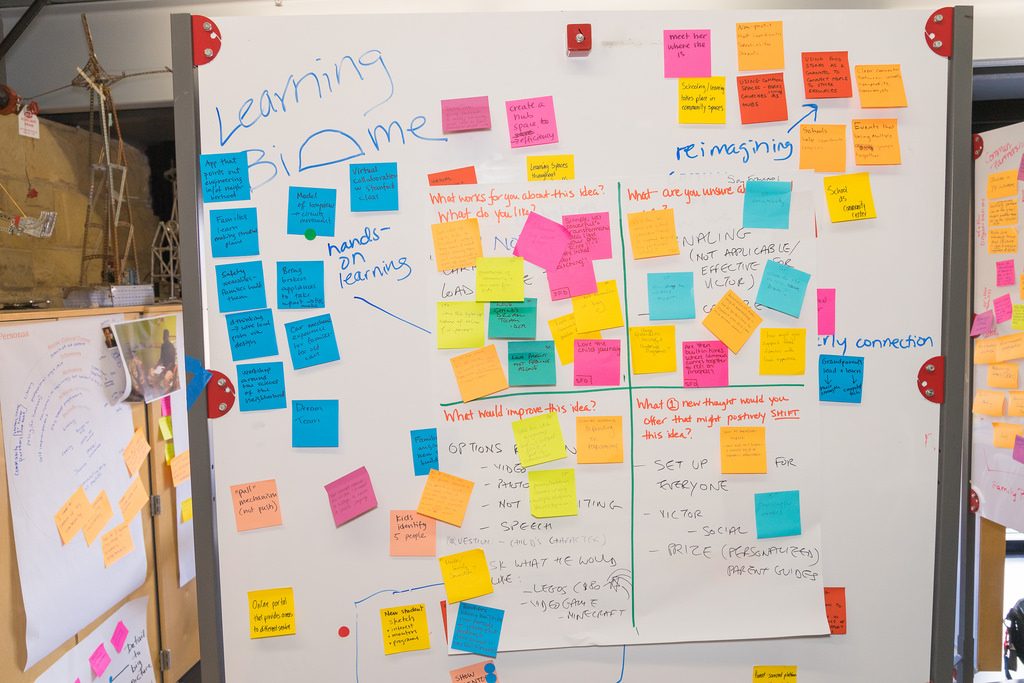
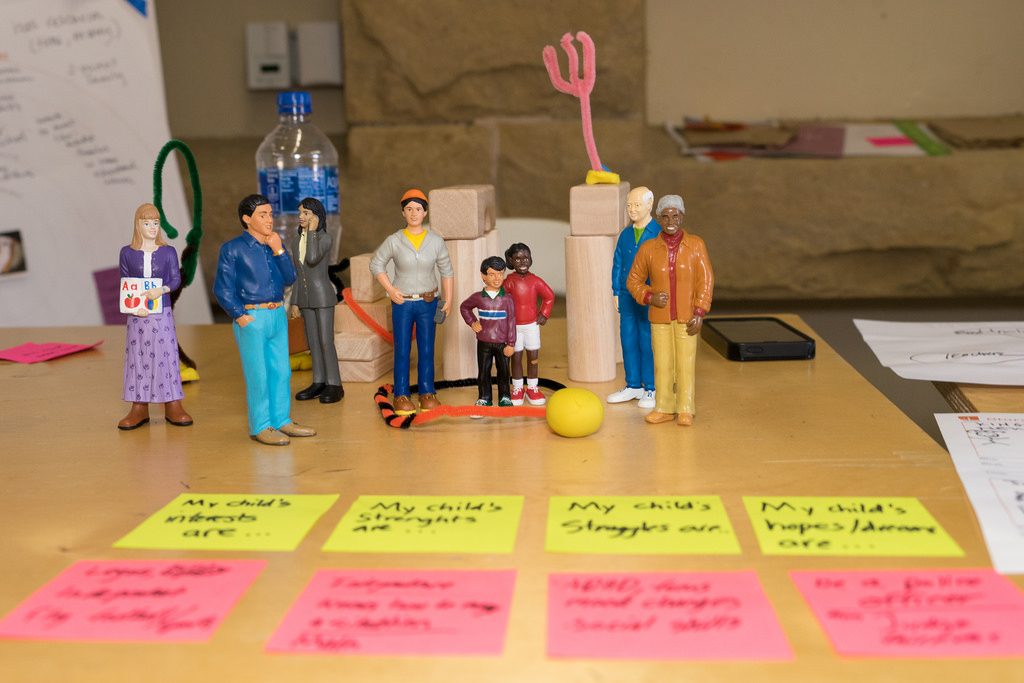
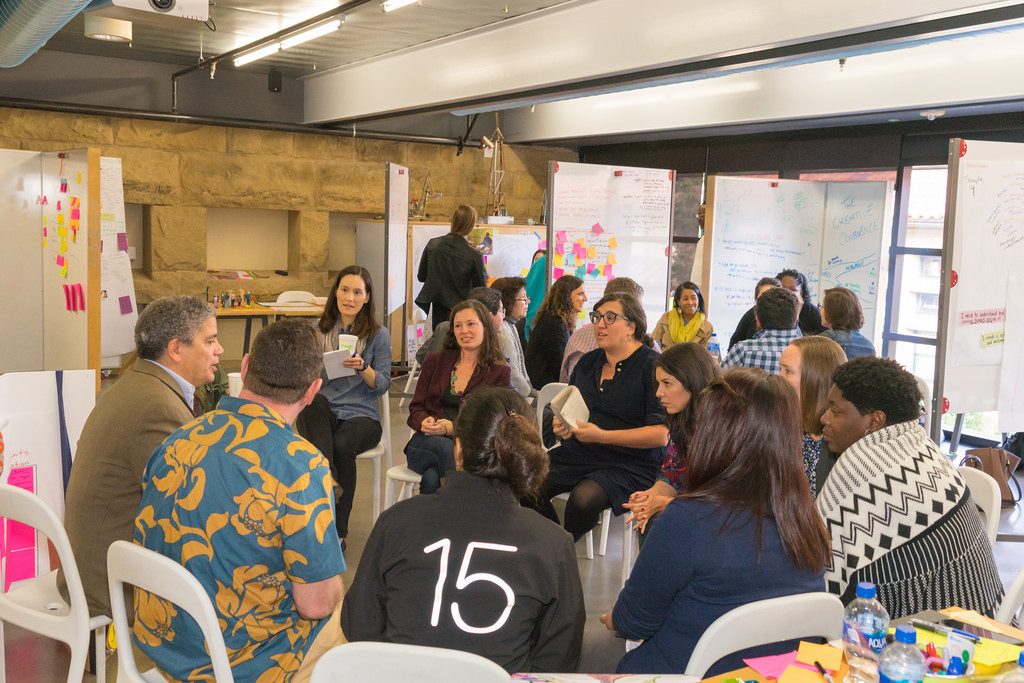
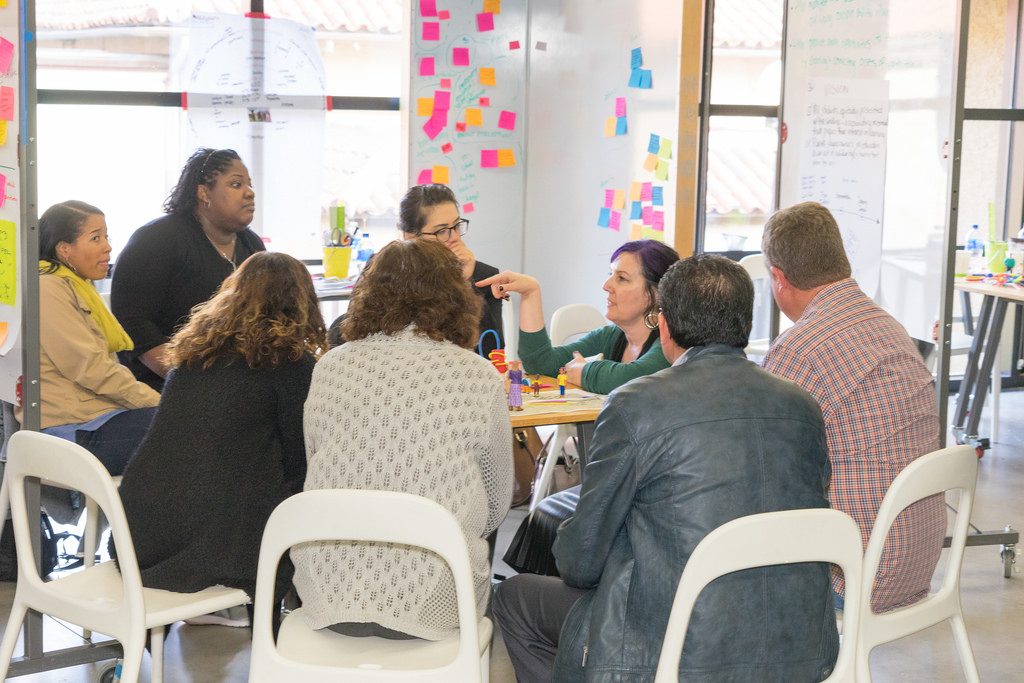
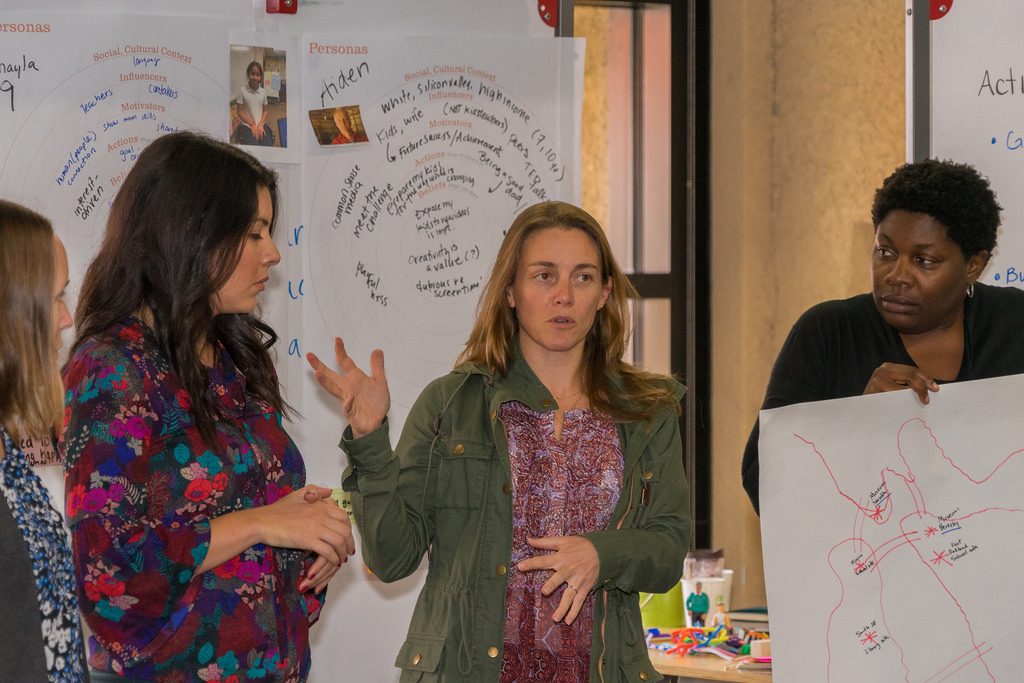

“The Creative Confluence” @drlovelace @adallie1 @theanalogdivide presenting at @stanforddschool #FamLABProject on a #learningpathway idea with potential to reach more kids. #RemakeLearning for ALL pic.twitter.com/a5gtCZZEX7
— Sunanna T Chand (@SunannaC) November 10, 2017
Thank you #FamLABProject and the “we are family” RC team for focusing on the role of families in a child’s education @stanforddschool @CooneyCenter @UnitedthroughEducation pic.twitter.com/4aiviOqPpC
— HEARD (@heardnowinc) November 11, 2017
Stay tuned for more information about the #FamLABProject. We’ll be publishing results in 2018!

